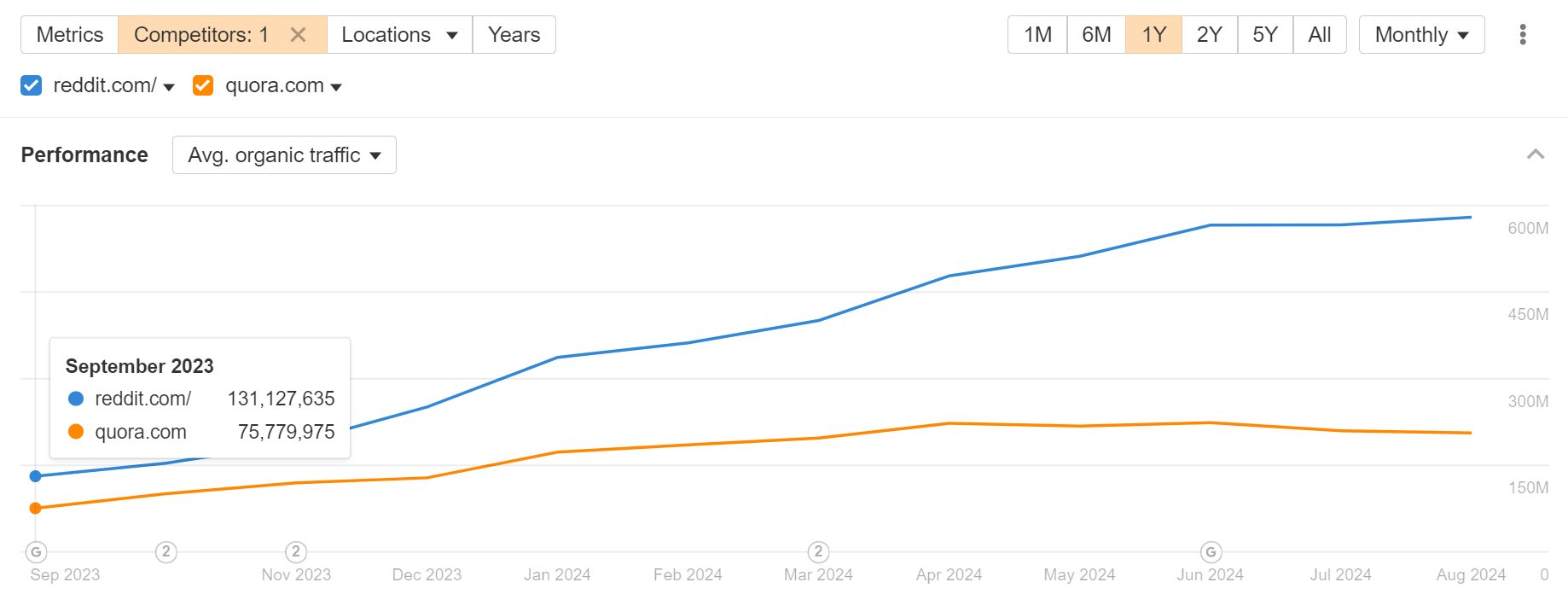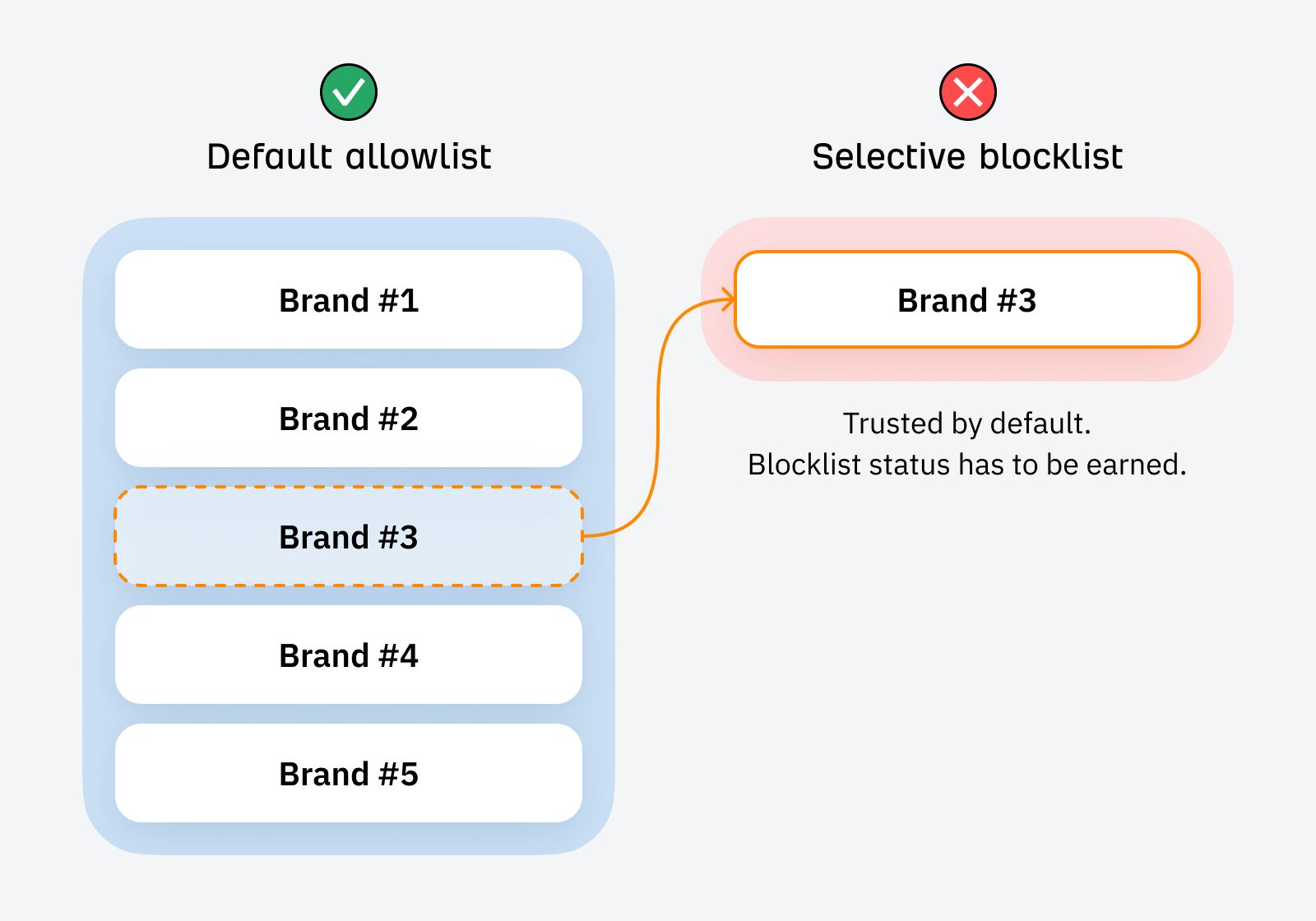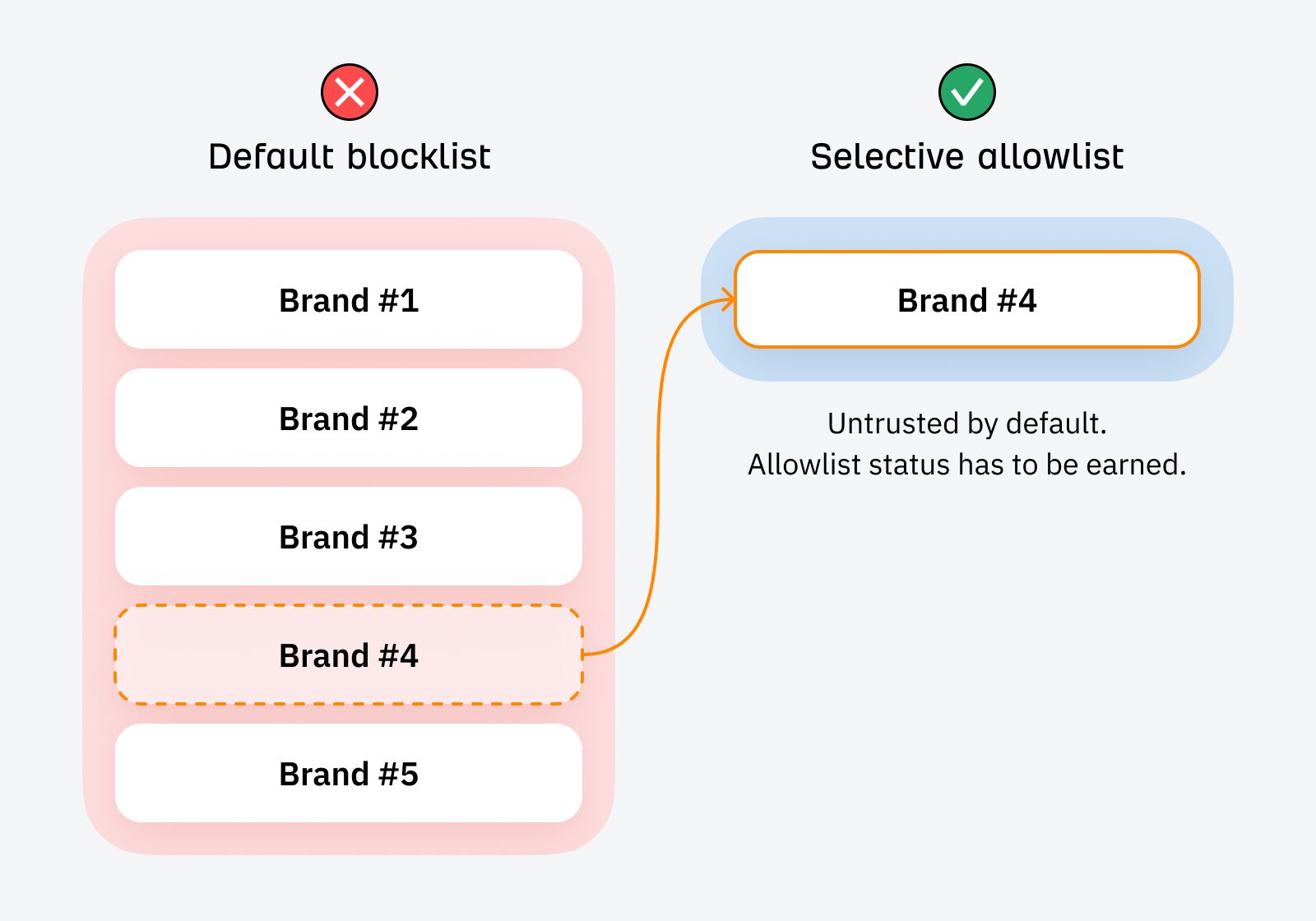As the web fills inexorably with AI slop, searchers and hunt engines are becoming much skeptical of content, brands, and publishers. Thanks to generative AI, it’s the easiest it’s ever been to create, distribute, and find information. But acknowledgment to the bravado of LLMs and the recklessness of galore publishers, it’s accelerated becoming the hardest it’s ever been to archer the quality betwixt genuine, bully accusation and regurgitated, atrocious information. This one-two punch is changing however Google and searchers alike filter information, choosing to distrust brands and publishers by default. We’re moving from a satellite wherever spot had to beryllium lost, to 1 wherever it has to beryllium earned. As SEOs and marketers, our fig 1 occupation is to flight the “default blocklist” and gain a spot connected the allowlist. With truthful overmuch contented connected the internet—and truthful overmuch of it AI-generated slop—it is excessively taxing for radical oregon hunt engines to measure the veracity and trustworthiness of accusation connected a case-by-case basis. We cognize that Google wants to filter retired AI slop. In the past year, we’ve seen 5 halfway updates, three dedicated spam updates, and a immense accent connected EEAT. As these updates are iterated on, indexing for caller sites is incredibly slow—and arguably, much selective—with much pages caught successful Crawled—currently not indexed purgatory. But this is simply a hard occupation to solve. AI contented is not casual to detect. Some AI contented is bully and utile (like immoderate quality contented is atrocious and useless). Google wants to debar diluting its scale with billions of pages of erroneous oregon repetitive content—but this atrocious contented looks progressively akin to bully content. This occupation is truthful hard, successful fact, that Google has hedged. Instead of evaluating the prime of each and each article, Google seems to person chopped the Gordian knot, choosing alternatively to elevate big, trusted brands similar Forbes, WebMD, TechRadar, oregon the BBC into galore more SERPs. After all, it’s acold easier for Google to constabulary a fistful of immense contented brands than galore thousands of smaller ones. By promoting “trusted” brands—brands with immoderate benignant of way grounds and nationalist accountability—into ascendant positions successful fashionable SERPs, Google tin efficaciously innoculate galore hunt experiences from the hazard of AI slop. (Worsening the occupation of “Forbes slop” successful the process, but Google seems to presumption it arsenic the lesser of two evils.) In a akin vein, UGC sites similar Reddit and Quora person their ain inbuilt prime power mechanisms—upvoting and downvoting—allowing Google to outsource the load of moderation: In effect to the staggering quantity of contented being created, Google seems to beryllium adopting a “default blocklist” mindset, distrusting caller accusation by default, portion giving penchant to a fistful of trusted brands and publishers. Newer, smaller publishers are default blocklisted; companies similar Forbes and TechRadar, Reddit and Quora, person been elevated to allowlist status. Hitting the “boost” fastener for large brands whitethorn beryllium a impermanent measurement from Google portion it improves its algorithms, but adjacent so, I deliberation this is reflective of a broader shift. As Bernard Huang from Clearscope phrased it successful a webinar we ran together: “I deliberation with the epoch of the net and present infinite content, we’re moving towards a nine wherever a batch of radical are default blocklisting everything and I volition take to allowlist, you cognize the Superpath assemblage oregon Ryan Law connected Twitter… As a mode to proceed to get contented that they deem to beryllium high-signal oregon trustworthy, they’re turning towards communities and influencers.” In the pre-AI era, brands were trusted by default. They had to actively interruption spot to go blocklisted (publishing thing untrustworthy, oregon making an evident factual inaccuracy): But today, with astir brands racing to pump retired AI slop, the safest stance is simply to presume that each caller marque encountered is blameworthy of the aforesaid sin—until proven otherwise. In the epoch of accusation abundance, caller contented and brands volition find themselves connected the default blocklist, and allowlist presumption needs to beryllium earned: In the AI era, Google is turning to gatekeepers, trusted entities that tin vouch for the credibility and authenticity of content. Faced with the aforesaid problem, idiosyncratic searchers will too. Our occupation is to go 1 of these trusted gatekeepers of information. Newer, smaller brands contiguous are starting from a spot deficit. The de facto selling playbook successful the pre-AI era—simply publishing adjuvant content—is nary longer capable to ascent out of the spot shortage and determination from blocklist to allowlist. The crippled has changed. The selling strategies that allowed Forbes et al to physique their marque moat won’t enactment for companies today. New brands request to spell beyond rote accusation sharing, and brace it with a wide objection of credibility. They request to awesome precise intelligibly that thought and effort person been expended successful the instauration of content; amusement that they attraction astir the result of what they people (and are consenting to endure immoderate consequences resulting from it); and marque their motivations for creating contented crystal clear. That means: The blocklist is not a literal blocklist, but it is simply a utile intelligence exemplary for knowing the interaction of AI procreation successful search. The net has been poisoned by AI content; everything created henceforth lives nether the shadiness of suspicion. So judge that you are starting from a spot of suspicion. How tin you gain the spot of Google and searchers alike? These large brands unsocial person added an estimated 85 cardinal integrated pageviews successful the past year.
These large brands unsocial person added an estimated 85 cardinal integrated pageviews successful the past year. Reddit and Quora person benefited from an estimated 579 cardinal integrated pageviews successful the past year. (Not a typo.)
Reddit and Quora person benefited from an estimated 579 cardinal integrated pageviews successful the past year. (Not a typo.)


Final thoughts




